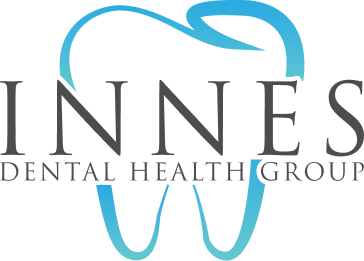
Signs to Be Aware of Regarding Wisdom Teeth
The final set of molars, wisdom teeth, emerge at the back of the mouth, trailing the second molars on both the upper and lower jaws. They typically appear from the late teens through the mid-twenties, though this can vary significantly. Some people see their wisdom teeth emerge sooner or later than this range, and others do not have wisdom teeth. Even if they don’t cause problems initially, there are several key reasons to consider having them removed.
Criteria for Removal of Wisdom Teeth:
- They may emerge at an angle, causing them to become trapped or press against the next tooth.
- A lack of space can lead to painful crowding and subsequent issues.
- If positioned incorrectly, wisdom teeth can make it hard to maintain oral hygiene due to trapped food, which can lead to tooth decay.
- Impacted wisdom teeth are prone to infections.
Wisdom Teeth Extraction Ottawa
When wisdom teeth grow in properly, they can be useful—but for many people, they end up just causing trouble. Impacted, or sideways-growing, wisdom teeth can lead to swelling, infections, or even damage the teeth next to them. If you’re experiencing discomfort, our team at Innes Dental specializes in gentle wisdom teeth extraction to prevent further complications.
Ignoring problem wisdom teeth is like letting weeds overrun a garden—they can crowd out the healthy growth and create issues in the future. Removing them can protect your long-term oral health. Explore your options for wisdom tooth removal in Ottawa and book a consultation today!
The Path to Wisdom Tooth Extraction
The removal of wisdom teeth might either be a straightforward task for your dentist or necessitate a surgical approach by a specialized oral surgeon. The examination will clarify the nature of the extraction required. Options include removing all four teeth in one go or spacing out the extractions over multiple visits.
Diagnostic Steps
Prior to extraction, an in-depth examination of your dental and jaw health is crucial. X-rays are taken to analyze the positioning and root structure of your wisdom teeth, determining whether a simple pull or surgical removal is necessary. This preparatory step is key to avoiding unexpected issues during the procedure.
Execution of the Removal
At the initial examination, our team will outline what you can expect during the extraction and how to best prepare for it. Depending on the recommendations of your dental care provider and your personal preferences, you might receive local anesthesia, sedation, or complete anesthesia. Our goal is to employ the most minimally invasive removal techniques, ensuring your comfort and facilitating a quick recovery.
Recovery Guidance
It’s recommended to have someone with you who can assist with your return home and provide support as you begin to recover. You’ll be given detailed aftercare instructions, including advice on activities to embrace or avoid for an optimal healing process. For any follow-up questions or concerns, our team remains at your disposal, ready to assist.
Cost Of A Wisdom Tooth Removal In Ottawa
The expense of having your wisdom teeth removed can fluctuate widely. With an average insurance plan, you might pay from $100 to more than $200 out of pocket for a single, uncomplicated tooth extraction. Without insurance, the cost for a basic extraction of a single tooth can range between $200 and $600 or more.
Providing a fixed price for wisdom tooth extraction remotely is not feasible because the treatment plan must be customized based on an individual’s unique dental health, which is only ascertainable through an in-person oral exam. There are primarily two types of dental extractions, simple and surgical, which influence the cost and provide insight into potential expenses:
Simple Tooth Extraction:
Targeted at wisdom teeth that are visible and free from complications, this type can be handled by a general dentist using local anesthesia. The simpler and quicker the removal, the less expensive the procedure.
Surgical Tooth Extraction:
Reserved for wisdom teeth that are either impacted, not fully erupted, have complex root systems, or are causing issues with adjacent teeth. Surgical extractions demand specialized skills and care, reflecting in a higher cost.
Bear in mind, obtaining a direct quote over the phone is not possible due to the specific nature and complexity of dental procedures. It is imperative to have a dental professional evaluate your condition to offer a tailored solution and discuss various treatment paths.
Contact us today
to schedule an initial consultation & exam.
Your consultation will include an examination of everything from your teeth, gums and soft tissues to the shape and condition of your bite. Generally, we want to see how your whole mouth looks and functions. Before we plan your treatment we want to know everything about the health and aesthetic of your smile, and, most importantly, what you want to achieve so we can help you get there.
Frequently Asked Questions
The removal of wisdom teeth is commonly viewed as a necessary ordeal, yet it’s only required for impacted teeth or if they cause oral health issues.
The field of dentistry now focuses more on ensuring patient comfort. With the use of modern techniques and tools, we aim to eliminate discomfort, perform procedures swiftly with minimal disturbance, and encourage quick recovery. You’ll receive aftercare instructions to help maintain comfort and aid in healing.
An hour after your surgery, it’s okay to take out the gauze and eat something soft. Remember to avoid hot food and drinking through straws for a few hours.
Personalized aftercare guidelines will be shared during your appointment. For a smoother recovery and to minimize complications post-wisdom teeth extraction, consider:
- Avoiding activities such as spitting, rinsing your mouth, blowing your nose, using straws, and smoking for the initial 24 hours.
- Not touching the extraction area with your finger or tongue.
- Staying away from hot food and beverages.
- Avoiding aspirin to ensure proper blood clotting.
- Limiting exercise and heavy physical activities.
It is beneficial to plan for a few days of relaxation or limited activity following the extraction to decrease the risk of complications and support the healing process. Generally, recovery takes about two weeks, with little discomfort expected.
Google Verified Patient Reviews






